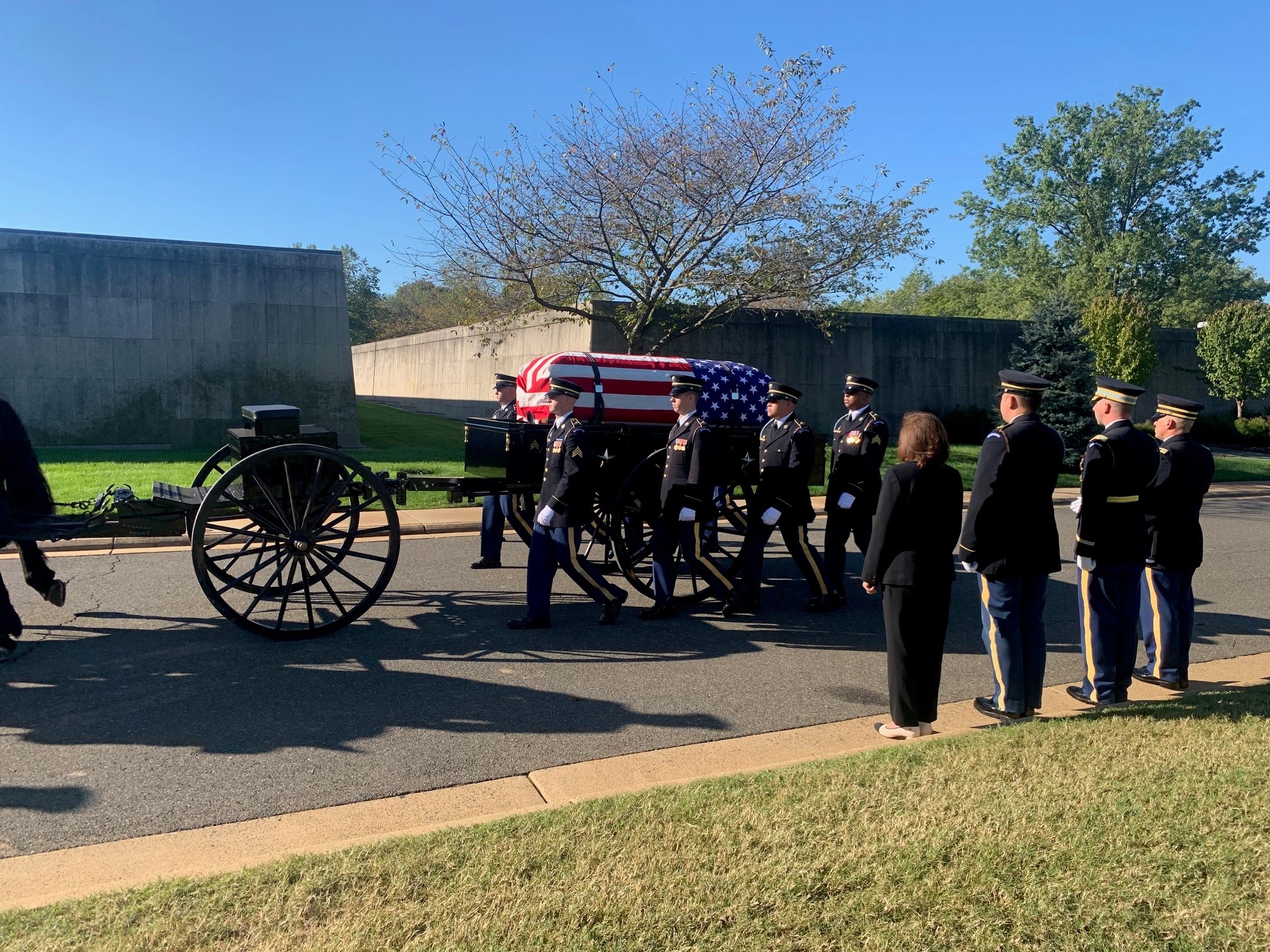
In the spring of 1945, Betty Buttala was just 8 years old when her uncle, without explanation, picked her and one of her brothers up early from school and drove them to their Chicago home in silence. When Betty entered the house, she found her mother on the floor, crying. Her mother had just received a telegram stating that her son Justice, a prisoner of war in Japan, had been killed in a prison fire. One by one, Betty’s five other siblings arrived home to learn their brother’s fate. “It was the saddest day of our lives to see our mother crying,” Betty said. “It was just a crying day.”
Justice, the second oldest of eight children, enlisted in the U.S. Army in 1943 and commissioned as an officer in the Army Air Forces in July 1944. Before he shipped out to Guam, he married his high school sweetheart, Dorabelle Neubert, and they had a daughter, Faith. He was serving as an observer with the 28th Bombardment Squadron, 19th Bombardment Group, of the 20th Air Force, when the Japanese shot down his B-29.
Betty, whose father had died when she was only nine months old, thought of her older brother as a father figure. “He would help my mom as much as he could,” she remembered. “He was such a giving person, very kind and very gentle.” Betty still has the letters that Justice sent to their mother, in which he always asked about his seven siblings and sometimes “drew little pictures of what his plane looked like.”
Buttala survived the shootdown of his B-29 Superfortress bomber near Tokyo on April 24, 1945, but the Japanese captured him as a POW. A month later—and less than three months before Japan surrendered, ending World War II—Buttala died, along with 64 other prisoners, in a fire at the Tokyo Military Prison. His remains could not be identified.
Yet Buttala’s family never forgot him. A year after his death, they held a memorial service at the local German Lutheran church, in which Taps was sounded, and his wife received a folded American flag. “Dorabelle turned to my mother and said, ‘You have had him longer than I have; this belongs to you,’” Betty remembered.
In 1946, as the Buttala family mourned, the Army’s American Graves Registration Service discovered the buried remains of 64 prisoners killed in the fire. They were able to identify 25 of them. In 1950, the remaining 39 unknowns were buried at Fort McKinley Cemetery (now the Manila American Cemetery and Memorial) in the Philippines.
Around 2018, Betty received a letter from Michael Krehl, the grandson of a prisoner killed in the fire. He wanted the 39 men buried in Manila to be identified, believing the military would open an investigation if 60 percent of the men’s families requested it. “And they did,” Betty said. In the spring of 2022, the Defense POW/MIA Accounting Agency (DPAA) exhumed the 39 unknowns and began the identification process. Betty, her sister and a nephew provided DNA samples. In 2024, she learned that her brother had been identified. “I just couldn't believe it,” Betty recalled. “It was just amazing.”
On Oct. 6, 2025, Betty, now 88, and her family gathered in Section 62 of Arlington National Cemetery to say goodbye to 2nd Lt. Buttala. U.S. Army Chaplain (Capt.) Philip Morlock described the day as one of both sorrow and solemn reverence. Buttala’s sacrifice “is the deepest cost of war,” he said. “Not only the loss of a life, but the loss of a future, the unwritten chapters, the silence where a voice once belonged. It is a burden carried not just by the fallen, but by every soul who ever loved them.”
Once the service ended, Betty placed her hand on her brother’s casket as she wiped away tears. “I’ve waited 80 years for this closure,” she said.